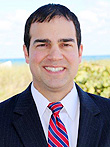Dell & Schaefer Answers Common Questions About A Recorded Statements In Injury Cases
 Author: Attorney Daniel Villalobos
Author: Attorney Daniel Villalobos
DISCLAIMER: THE FOLLOWING ANSWERS TO FREQUENTLY ASKED QUESTIONS IS NOT TO BE CONSTRUED AS LEGAL ADVICE. ALL VICTIMS MUST SEEK THE ADVICE OF LEGAL COUNSEL BEFORE UNDERGOING A DEPOSITION OR RECORDED STATEMENT
Q: What is the difference between a recorded statement and a deposition?
A: Both a recorded statement and a deposition are given in order to get the facts of the case and learn about the injuries in the accident. A recorded statement is typically done prior to filing a lawsuit in order to see if the insurance company will pay a claim without having to go to court. If a case cannot be settled before going to court then a lawsuit will be filed and a deposition will be given. A deposition is an out of court oral statement that is reduced to writing that will be used later in a court proceeding or at trial. A deposition is part of the discovery process to simplify trial and to solidify the facts in advance of trial of what transpired on the day of your injuries and the type of injuries you sustained. Typically an attorney can settle your case without having to file a lawsuit. To do this all that is necessary is a recorded statement to the insurance company about what happened. A recorded statement is not part of the official discovery process of a lawsuit, although an attorney can request the contents of a recorded statement as part of a discovery request.
Q: Why do insurance companies require a recorded statement?
A: Insurance companies require a recorded statement to get a summary of what transpired on the day of the injury. Typically insurance companies will not make any offers unless they know what happened and can determine if they are in fact responsible.
Q: Am I on trial by doing a recorded statement?
A: No you are not on trial. Think of a recorded statement as a conversation with a representative from the insurance company about what happened. You are not at trial, nor in front of a judge. You are simply telling someone what happened. Stay calm and be confident about what you know.
Q: How should I answer the questions asked by the insurance company?
A: It depends on the circumstances of each case, but a general rule of thumb is to keep your answers short. Try to answer every question in one word if you can. If you cannot answer it in one word then do it in as few words as possible. For example, if the question asked is “Are you hurt”? Then the appropriate answer is “Yes.” Notice the question did not ask where are you hurt or for how long, just simply whether you are hurt. Never say more than is necessary. Often times clients say too much that is not being asked and end up saying something that hurts the case simply because the answer came out wrong and not how they intended to respond. If the answer to their question is too short and not sufficient, let the insurance company ask a follow up question. Don’t do the research for the insurance company.
Q: What do I say when they ask me how or why I fell or how the automobile accident happened?
A: This is the single most important question and answer in a recorded statement. The whole case can rise or fall on this question and answer. If a victim does not know why he or she fell or how an automobile accident happened, it may make it very hard for the attorney to prove that the insurance company is responsible to pay. The injured party has the burden to show that the defendant was negligent. If the injured party cannot show that the defendant is negligent, a jury will most likely deny you a verdict. Be sure to review the facts of the case with your attorney to be certain how to answer this question the best way according to the facts of the case. The injured party should know exactly what happened, any guessing as to what happened will typically diminish the strength of the case against the defendant.
Q: What if I say something wrong in the recorded statement, can they use this against me at trial?
A: Yes it can be used against you. For example if you say in a recorded statement that the floor was wet with water in a recorded statement, but then say in a deposition prior to trial that the floor was wet with shampoo, the defendant’s attorney will most certainly point out the inconsistencies in your version of the events and try to convince the jury that you are a liar and cannot be trusted. That is why it is very important to write down exactly what happened so you can be sure to refresh your memory before any recorded statements. In addition, your lawyer should give a disclaimer before the recorded statement begins that would prohibit the opposing counsel from ever using the recorded statement against you. If the insurance company will not agree to a disclaimer then refuse to give the statement. If the insurance company does agree to give a disclaimer then typically the lawyer will say something along the lines of “this statement is being given voluntarily for the purpose of pre-suit investigatory purposes only, not to be used in any court proceeding, nor for impeachment or any adversarial purpose and should a lawsuit be filed in this matter, this statement will be null and void and inadmissible in all circumstances.” This way if the injured victim happens to misspeak in the recorded statement, the information cannot be used against him or her in the trial process.
Q: Can my lawyer speak during the recorded statement?
A: Typically your lawyer will not speak during a recorded statement. A recorded statement is the opportunity for the insurance company to find out from the victim what happened. Your lawyer typically cannot answer these questions for you. The main purpose of your lawyer’s presence during a recorded statement is to be sure that the insurance company does not ask you any illegal questions. For example they cannot ask you about any conversations you had with your lawyer (protected by attorney/client privilege) and they cannot ask you any compound and confusing questions. So if a question is asked and your lawyer does not instruct you to not answer the question, then you most likely have to answer the question.
Q: How is the recorded statement going to take place?
A: Typically there are three parts to the statement. The first part is usually questions about the victim such as name, address, social security number, date of birth, etc. etc. These lines of questions are to be certain that the actual victim is present and doing the statement and not someone else filling in. To be sure they have the right person they ask personal questions typically only the actual victim should know by memory. The second part of the statement is usually about what happened in the accident. This is the most important part of the whole process. The victim should know as much detail as possible about what happened. The third part of the statement is about what injuries the victim sustained. Here they will ask very specific questions about the injuries to understand the severity of the injuries, to make sure that the injuries correlate to the accident, and also to be sure that there is no fraud. The insurance company might ask specific questions such as whether the doctor is tall, or if the office is large or small, or specific details about each treatment you received. There is a lot of fraud in insurance claims and so the insurance company has to be sure that you are receiving the exact treatment that the doctor is billing for and the lawyer is presenting in the case. If it was fraud and the victim never received any treatment, then he or she would not know the answer to very simple questions about details of their treatment.
Call us for a free consultation. There are no costs or fees unless we recover money for you.
